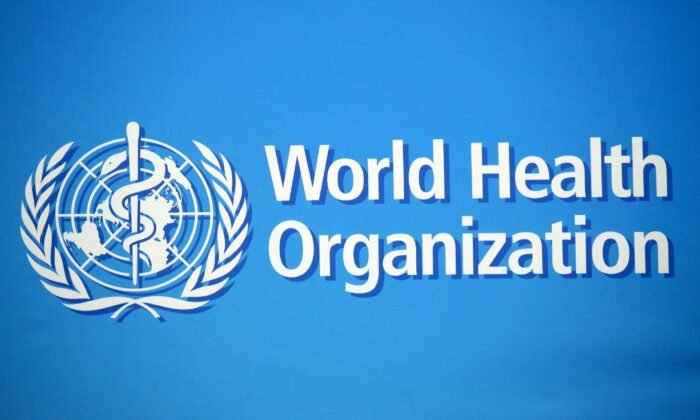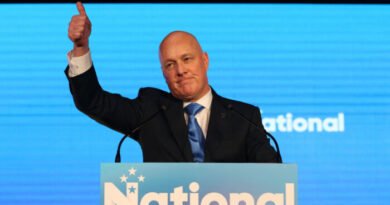Who Holds Power Over the World? | The Epoch Times
Lawmakers in both the UK and US have expressed serious concerns about the WHO’s expanding ‘command and control’ approach.
Commentary
Who truly rules the world?
Amidst unprecedented health challenges, the World Health Organization (WHO) is striving to increase its influence and financial resources. Key to this effort are substantial revisions to the International Health Regulations (IHR) and the introduction of a new Pandemic Treaty.
These reforms aim to enhance global health security and have sparked a debate on the balance between international cooperation and national sovereignty in public health.
The WHO’s plans, originally set for completion by 2023, have faced delays prompting a late January plea from Director-General Tedros Adhanom Ghebreyesus.
He urged member states to compromise, stressing the urgency of finalizing the negotiation process.
Tedros sought to address criticism by suggesting that resistance arises from misunderstandings or intentional misrepresentations of the WHO’s intentions. However, it seems Tedros and his team are facing a growing recognition: their influence on global health policy is diminishing.
This resistance is not confined to less influential nations but has reached major funders of the WHO, including lawmakers in the UK and the US who are deeply concerned about the WHO’s expanding “command and control” approach to public health.
In Australia, One Nation along with senators Alex Antic, Gerard Rennick, and Ralph Babet have raised similar concerns. They worry that the proposed reforms may centralize authority at the expense of national sovereignty.
European Parliament member Rob Roos has pointed out the potential risks of the WHO’s ambitions in a presentation in Washington D.C. Framing the proposed amendments to the IHR and the pandemic treaty negotiations as a path towards diminished national autonomy in health matters.
The timeline for these instruments dates back to Dec. 1, 2021, when 194 WHO member states agreed to expedite efforts towards a treaty or similar global framework to bolster the WHO’s authority, particularly that of its director-general, in managing future pandemics. Despite support for a binding pandemic treaty from the European Parliament, the dialogue is marked by conflict.
Mr. Roos mentioned that over 300 amendments were initially proposed by the Biden administration.
These amendments are currently under review and are expected to be voted on at the WHO’s general assembly by the end of May. If passed, they could bypass the need for national parliamentary ratification, potentially enabling the WHO to bypass national democratic processes.
Critics like Swiss lawyer Phillip Kruse argue that the negotiations have largely overlooked a wealth of data and scientific evidence highlighting the adverse effects of the WHO’s pandemic response strategies, such as lockdowns, mask mandates, and experimental vaccinations.
The proposed pandemic treaty and IHR amendments stir controversy by aiming to centralize global health authority.
Skeptics suggest that this may institutionalize the unilateral public health measures witnessed during the COVID-19 crisis, under the guise of preparing for future pandemics. These changes could empower the WHO to impose broad mandates on member states for any public health emergency, from flu outbreaks to climate change, without clear standards or accountability.
The negotiation process has been marked by a lack of transparency and procedural irregularities. The WHO initially intended to publish the final IHR amendment text well before the May 2024 World Health Assembly, providing time for national debates and formal approvals.
However, the WHO’s Working Group unilaterally changed this timeline in October 2023, replacing the promised final draft with a set of preliminary amendments and an interim draft. This sudden shift raises doubts about the legality and compliance of the move with existing IHR procedures.
The situation is further complicated by the apparent disappearance of the interim drafts and a noticeable silence from UK officials involved in the negotiations. Mr. Roos has written to the WHO director-general requesting these drafts but has not received a response.
The UK government’s refusal to reveal the negotiators’ identities or engage transparently with lawmakers reflects a broader disregard for democratic processes and accountability. This secretive approach, along with concerns over funding and influence, implies that the WHO’s funding and policies are increasingly dictated by its funders, including pharmaceutical companies, China, and “philanthropists.”
Criticism from organizations like Human Rights Watch, accusing the draft treaty of being unduly influenced by corporate and wealthy nation priorities, underscores the tension between public interest and private gain.
As the deadline for adopting these significant changes approaches, the lack of transparency and engagement from the WHO and nations like Australia indicates a troubling inclination to bypass democratic oversight.
The ongoing saga of the WHO’s efforts to reform global health governance raises urgent questions about the future of international cooperation in public health.
With critics warning of a shift towards centralized control and away from national sovereignty, the world observes carefully as the WHO navigates these challenging waters.
The outcome of these negotiations will not only shape the WHO’s role in future pandemics but will also test the boundaries of global governance in an era marked by heightened nationalism and skepticism towards multilateral institutions.
Views expressed in this article are the opinions of the author and do not necessarily reflect the views of The Epoch Times.





